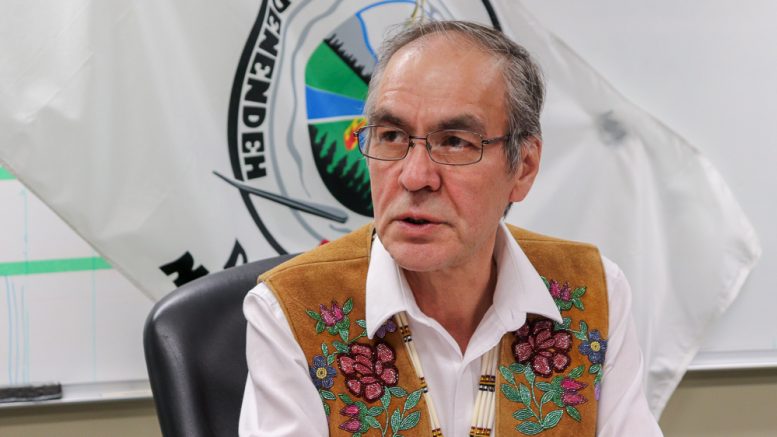When Norman Yakeleya first became Dene National Chief he was struck by how the Dene Nation “as a whole was not working.”
Soon after being elected to the position, he was at a gathering where he says a Tłı̨chǫ youth asked “Who is the Dene Nation? What do they stand for?”
“That gave me an indication of what’s out there in the communities,” says Yakeleya.
As part of his review of the organization, he took a look at its constitution.
“It was way outdated,” he says.
Mainly, it didn’t reflect the land claims and self-government agreements.
Constitution speaks to Dene culture
Dene Nation set up a constitution reform committee, which has been working on revamping the document for about two years. Now, the new proposed constitution is ready to be presented to chiefs across Denendeh at a special assembly from Aug. 3-5.
“Our constitution is more than mere legal framework bylaws, corporations. It’s really the constitution of the Dene in our cultural sense, in our spiritual sense, coming back to who we are as a nation, and how we’re going to work together for the future,” Yakeleya told reporters last Thursday.
While the national chief did not give specifics, he said membership outside the NWT, chief terms and the relationship with self-governed nations are some of the practical implications of the new constitution.
Ultimately, Yakeleya said the new constitution should reflect unity among Dene.
“Little did I know how far we’ve grown apart as Dene and how the tactics of divide and conquer are alive and well in the North, in Ottawa, and in Yellowknife, with the Legislative Assembly,” he said.
Over the years, he says, the regions have come back together to the table.
“The families of the Dene are coming back, talking amongst ourselves with our Treaties 8 and 11, and our land claim agreements to see how we can advance the interests of the Dene in these challenging times.”
Yakeleya says he’s had commitment from representatives from all regions to come and discuss the proposed constitution in August.
Future of the Dene Nation?
He said the document will help guide the Dene for the next 50 years.
As more nations achieve self-government and implement land claims, Yakeleya says the role of the Dene Nation will be “flexible” in the future where it will recognize the regional land claims and self-governments. He said it may be a united voice for all regions when advocating with the federal government on things like housing, water, and reconciliation.
He said the future of the organization “is a very important question.”
“That’s what we want to ask our leadership, ‘You are the ones to determine the role of the Dene Nation’,” he said.





